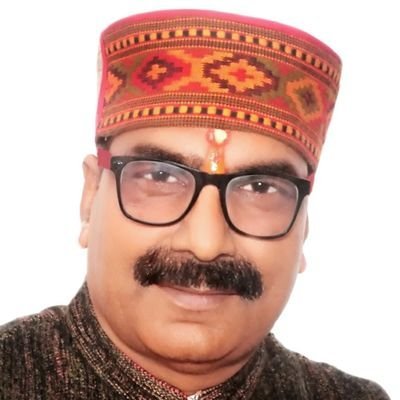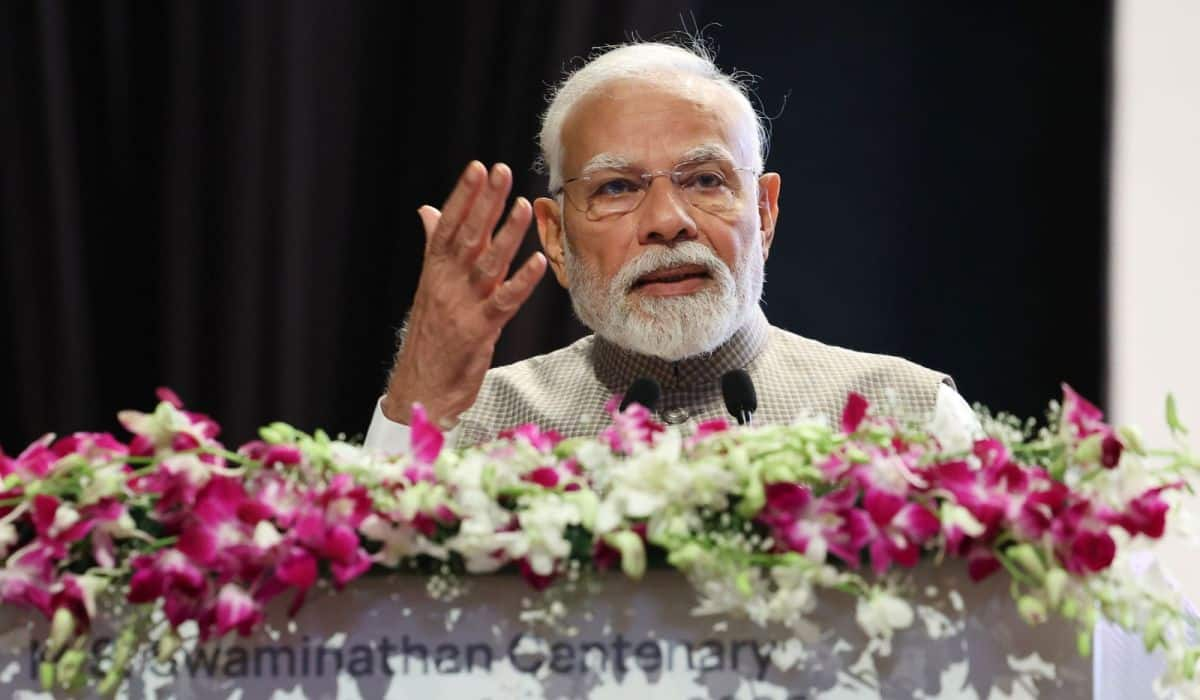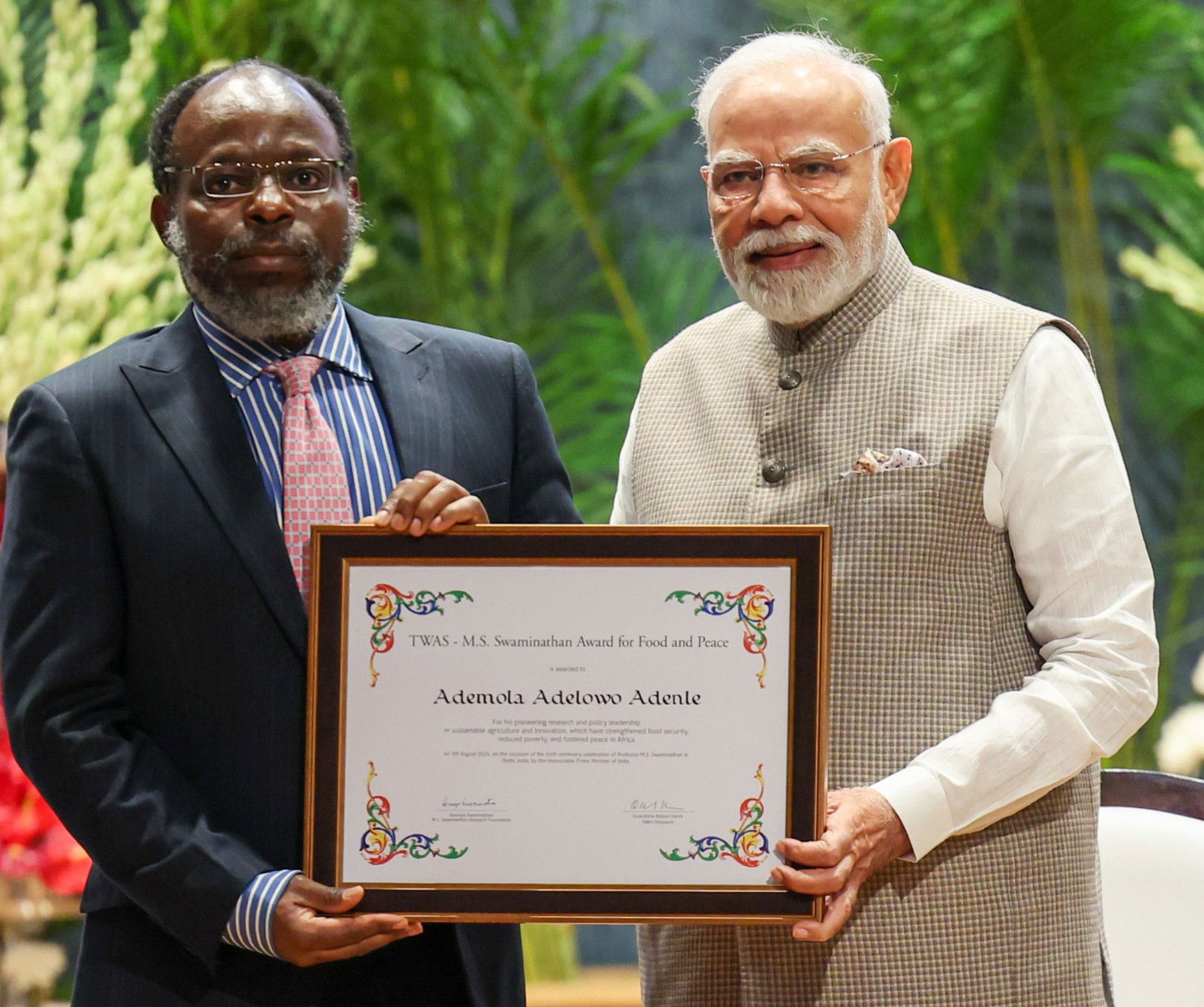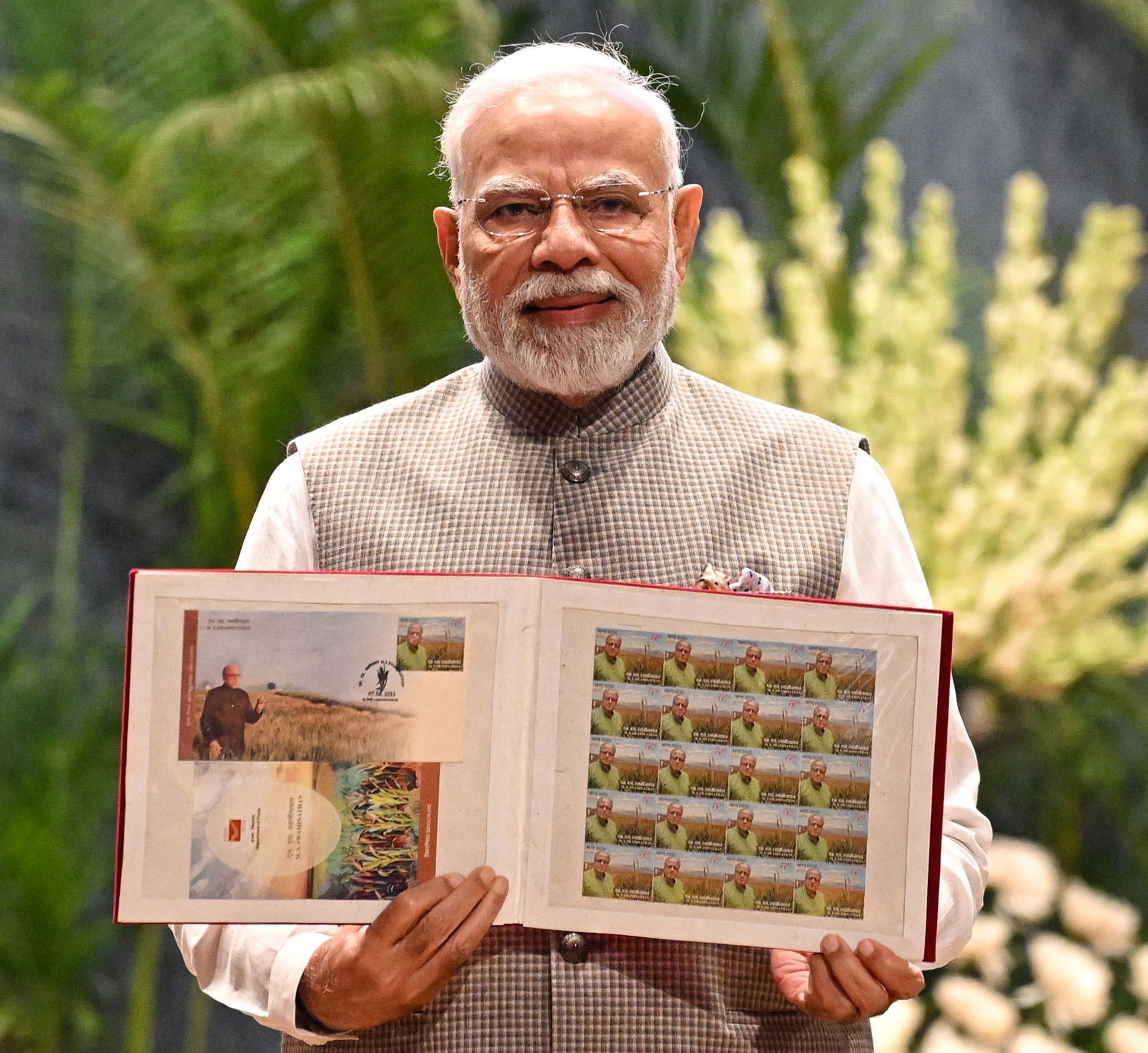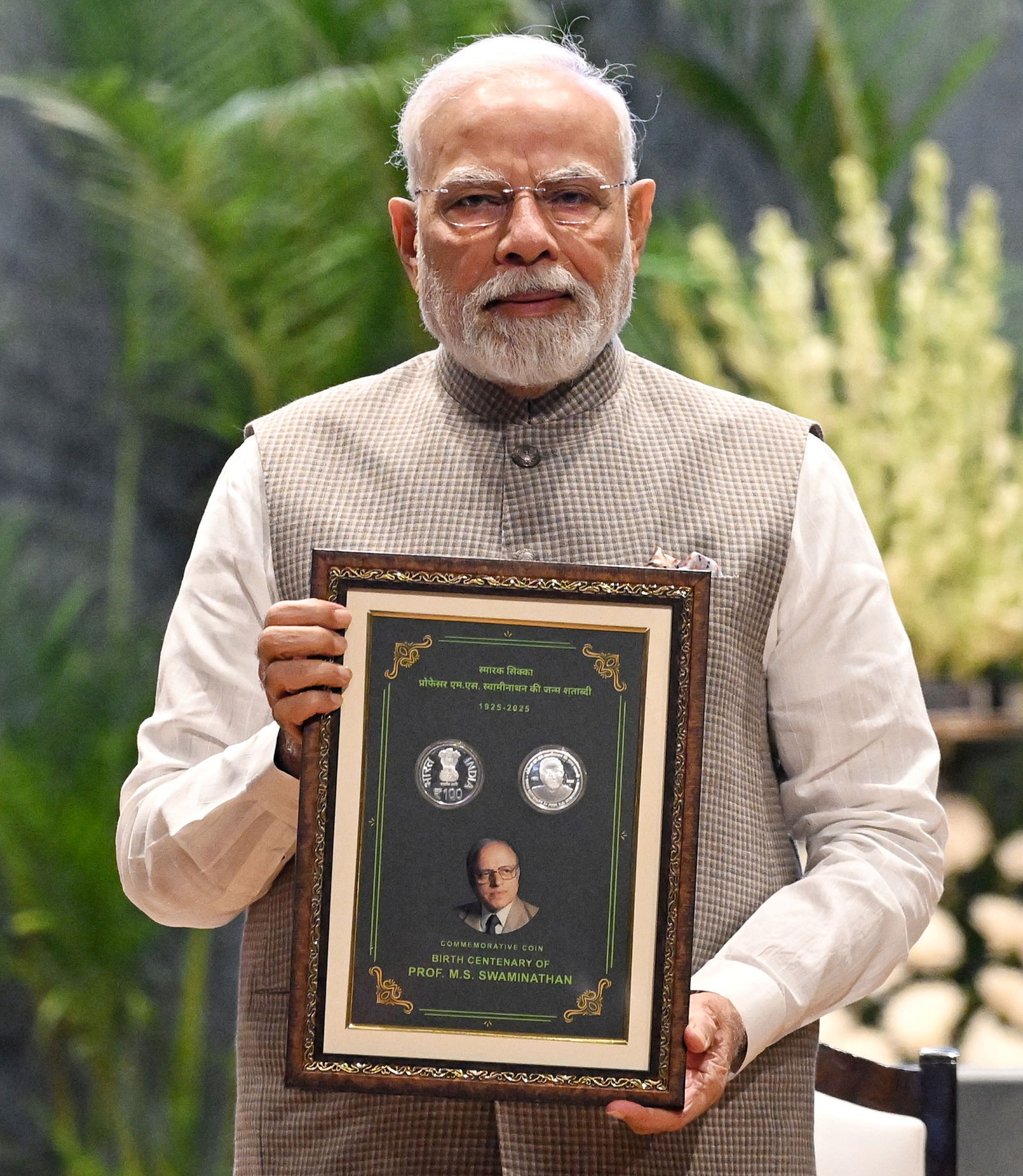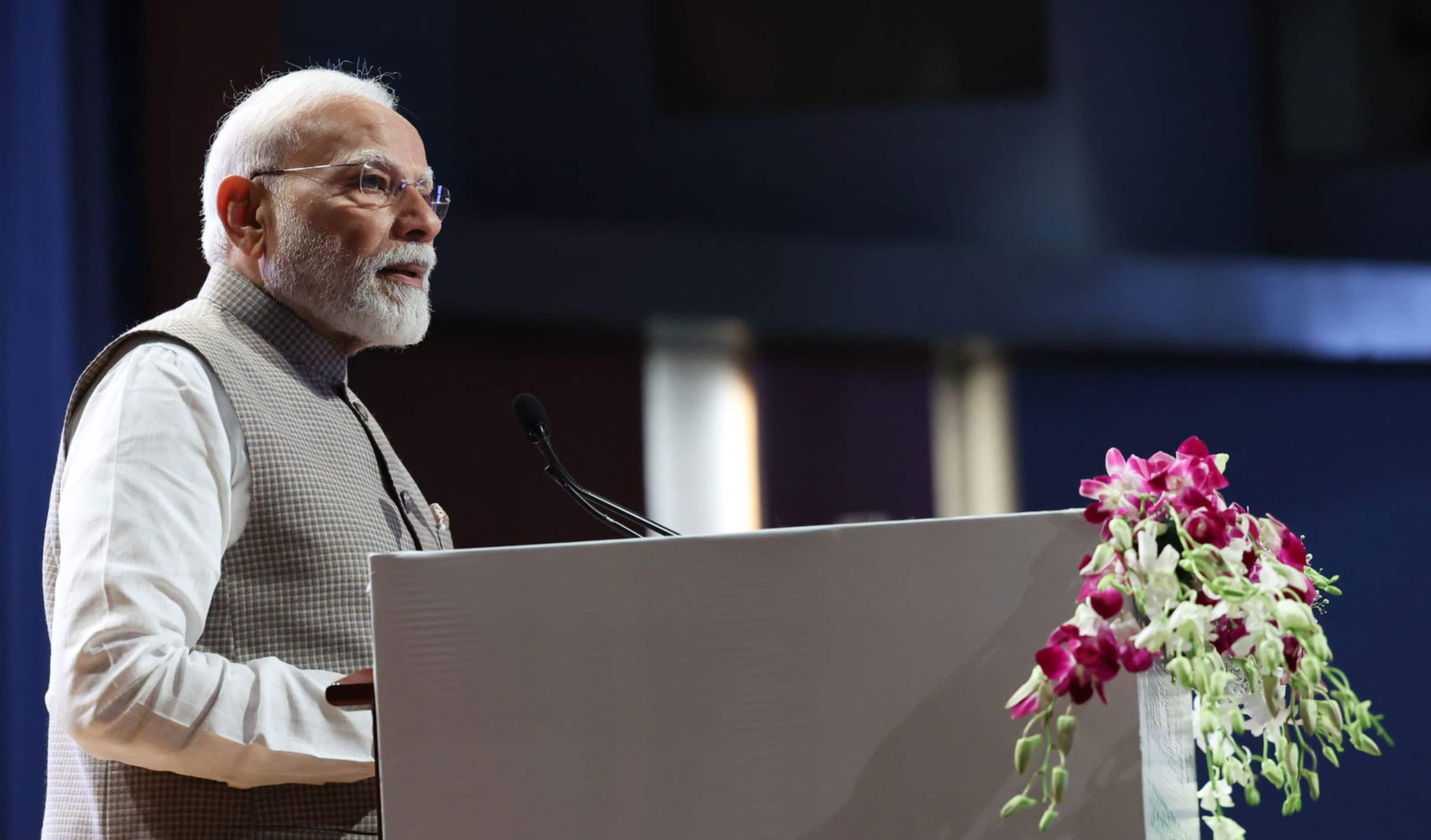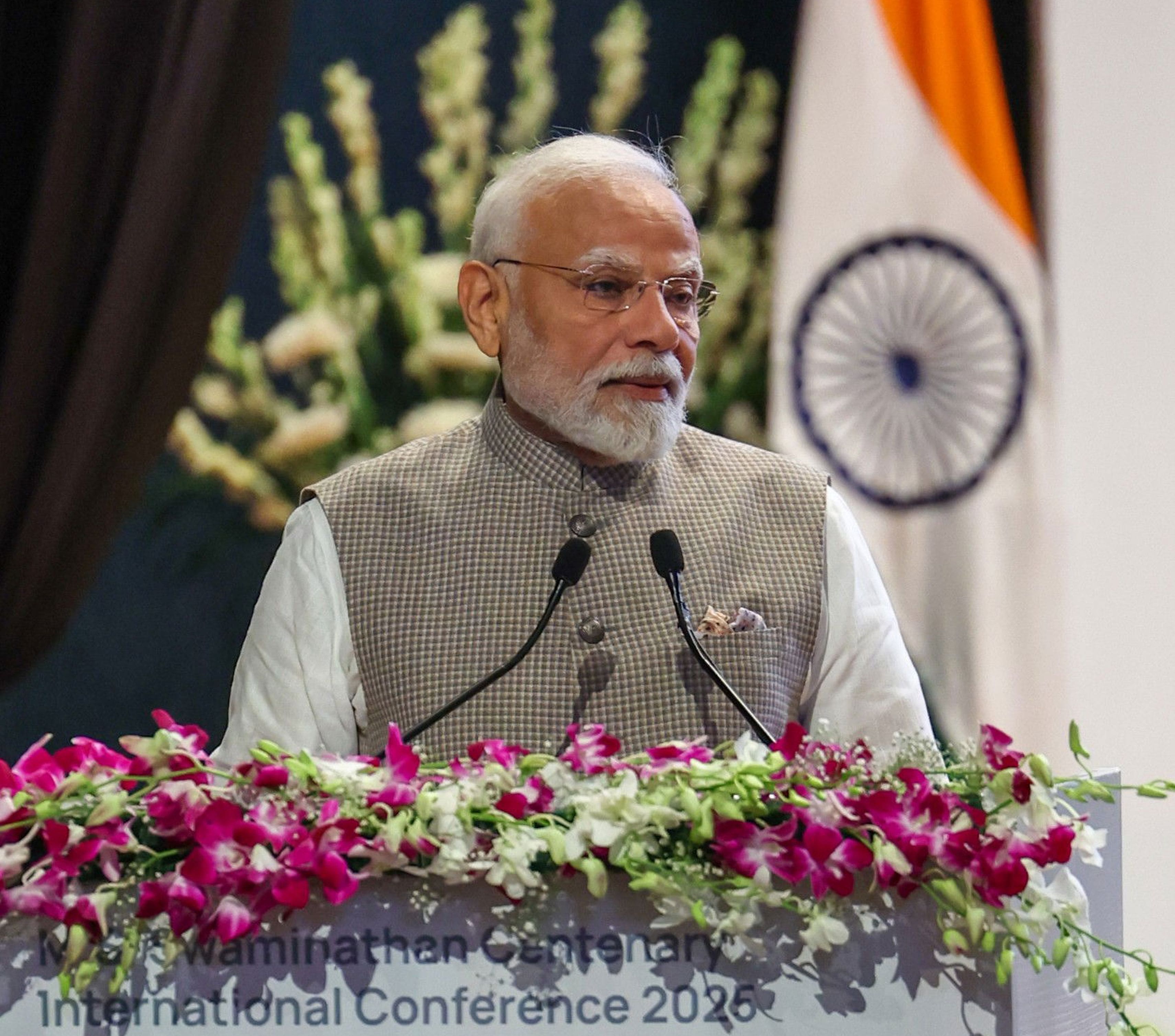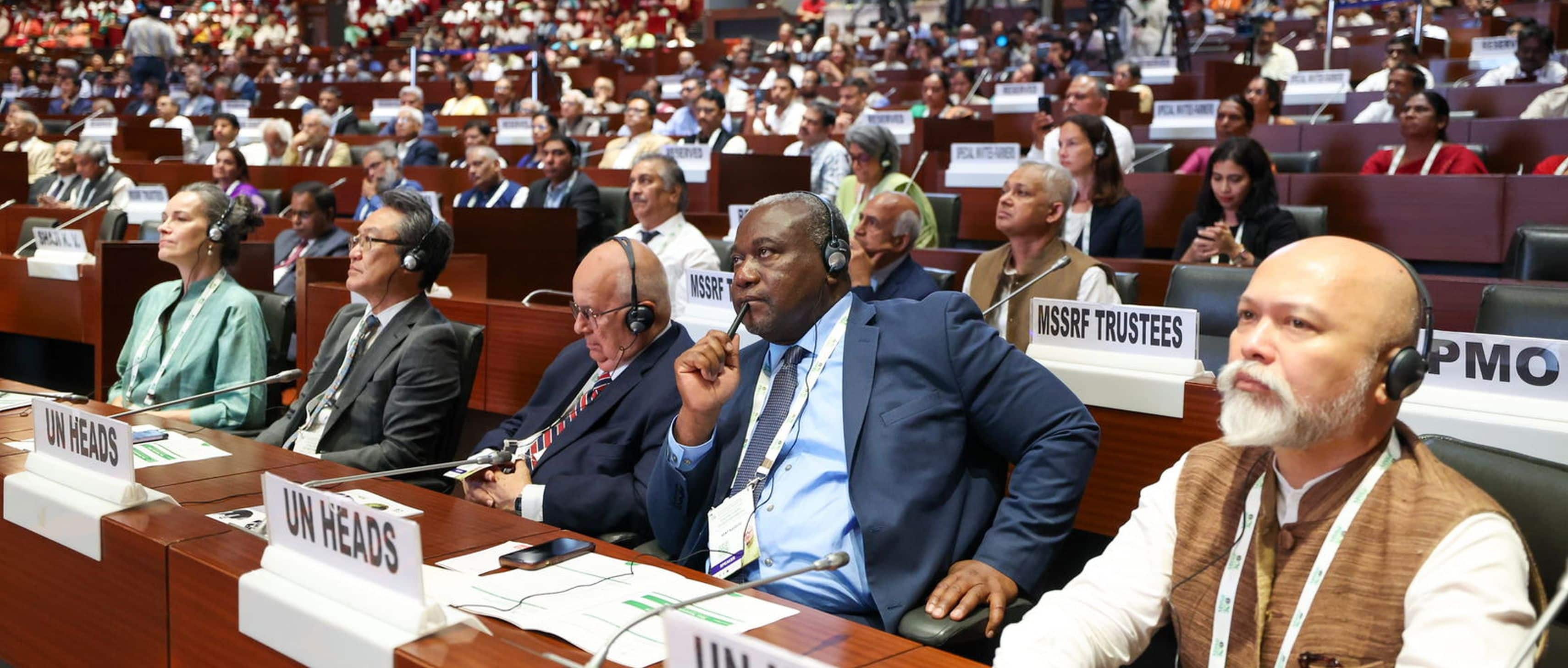Today it’s an extremely good opportunity when we have been remembering a great son of the country who had sacrificed his life for the country. This is a passion to work tirelessly, to sacrifice ourselves for the country that brings us together in this manner that is beyond the concerns about the date, time and period of the day.
I convey my best wishes to all of you, particularly the scientific community on the occasion of the 125th birth anniversary of Acharya Satyendra Nath Bose.
Friends, I have had the pleasure of interacting with renowned Scientists in the beginning of every year. I am glad that today, an auspicious opportunity allows me to share some thoughts with you.
Today, we open a year-long celebration of the 125th year of Acharya Satyendra Nath Bose, who was born on this day in 1894. I have learnt a great deal about his accomplishments that were far ahead of his times and society.
Friends, Deshbandhu Chitranjan Das had mentioned this thing in one of his poetries -
“There is an eternal truth inherent in the water and soil of Bengal.”
This is that truth that takes the thinking and deliberations of the people of Bengal to that level which is difficult to attain. This is that truth because of which Bengal became the pivot of the country and held it together for centuries.
Be it freedom movement or be it literature or science or be it sports, in every sphere the impact of water and soil of Bengal is clearly reflected. Swami Ram Krishna Paramhans, Swami Vivekanand, Guruwar Ravindranath Tagore, Subhash Chandra Bose, Shyama Prasad Mukherjee, Bankim Chandra, Sharad Chandra, Satyajit Ray, you name any field and one of the stars of Bengal will be shining there.
It’s a matter of pride for India that this land has given several top scientists to the world. Besides Acharya S.N. Bose, there have been several names like J.C. Bose, Meghnad Saha and countless such names who have provided a very strong foundation of modern science to the country.
They have served the people through their ideas and inventions despite very limited resources and extreme hardships. Even today we have been learning from their commitment and creativity.
Friends, we have a lot to learn from the life and works of Acharya S. N. Bose. He was a self-taught scholar. He succeeded despite many constraints. These included the lack of formal research education, and little connectivity with the global scientific community. His path-breaking work in 1924 was due to his single-minded devotion to uncharted science.
It laid the foundations of Quantum Statistics and a basis for modern Atomic Theory. Einstein's biographer Abraham Pace regarded his work as one of the last four revolutionary papers on old Quantum Theory. The name of Satyendra Nath Bose has been immortalized in the history of science by concepts and terms, like Bose Statistics, Bose Einstein Condensation and Higgs Boson.
The fundamental importance of his work may be gauged from the fact that several Nobel Prizes in Physics have been awarded subsequently to researchers carrying forward his ideas to diverse physical applications.
Professor Bose was a crusader for teaching of science in vernacular languages. He started the Bengali science magazine Gyan-o-Bigyan.
To promote understanding and love of science in our youth, it is vital that we promote science communication in a big way. Language should not be a barrier but a facilitator in this task.
Friends, India’s scientific research eco-system has traditionally been very strong. There is no paucity of talent, or of hard work or of objective.
India has emerged at a very rapid pace in the field of science and technology in the last few decades. Be it IT sector or space technology or missile technology, India has left its mark on the entire world. These successes of our scientists and technology experts are a matter of pride for the entire country.
The entire world watches in awe when more than 100 satellites have been launched in the space by a single rocket of ISRO. At that time we Indians rejoice on this prowess of our scientists by holding our heads high.
Friends, it will be a great injustice with you people and also with the country if the hard work done by you people in the labs and the sacrifice made by you people remain confined within the labs. Your hard work for boosting the scientific capabilities of the country will be even more fruitful if you people are able to provide benefits to common man of the country by adapting it to modern times.
That is why today it is extremely essential that the final outcome of our research and our innovations is clearly laid out. Whether your research is making a poor person’s life easier, whether it is able to alleviate the problems of middle class?
When the basis for our scientific experiment will be to find the solution for our social-economic problem then it will be easier for you people to set the final outcome, to decide the target for yourself.
I believe that the scientists of our country will continue to provide the country such creative technology solutions due to their out of box thinking that will benefit the ordinary people and which will make their life even more easier.
I’ve been told that various scientific institutions have started their research and development projects while keeping in the mind subjects like solar power, clean energy, water conservation and waste management. It is our collective responsibility that this kind of products and results don’t remain confined to laboratories.
Distinguished Scientists and Students, You all have studied and are probably also experts of Quantum Mechanics. I have not studied it. But I understand that there are many lessons that Physics can teach us in day to day life. A classical particle cannot escape easily from inside a deep well. But a quantum particle can!
For one reason or another, we have confined ourselves into isolation. We hardly cooperate, collaborate and share our experiences with fellow scientists of other Institutions and National Laboratories.
To reach our true potential and to take Indian science to its rightful glory, we should be like a quantum particle that escapes its confinement. This is even more important today, as Science becomes hugely multi-disciplinary and requires concerted efforts.
I have been talking about the need for greater sharing of physical and research infrastructure, which is expensive and has an increasingly short lifetime.
I am told that our science departments are now working on a multipronged approach. I understand that a portal is being developed for sharing of scientific infrastructure that would allow transparent and efficient tagging and sharing of resources.
A mechanism is being put up for strong collaborations between academic and R&D institutions. City based R&D Clusters are being created to bring together all Science and Technology partners from Academia to Institutes, to Industries to Startups.
The success of this effort will depend on our ability to bring all institutions and labs under this strategy. It requires whole-hearted support from each of us. The mechanism should ensure that a scientist from the remotest corner of the country has seamless access to resources in, say, IIT Delhi, or say, a CSIR Lab in Dehradun. Our aim should be to ensure that the whole of our efforts and actions is always greater than the sum of the various parts.
Friends, science and technology works like an extraordinary engine for development, growth and transformation. Once again, I would like to appeal to you people, to the scientific community of the country to decide the direction of your innovations by keeping in mind our socio-economic challenges.
You are aware that millions of people in our country, particularly thousands of children in the tribal community are being affected by sickle cell anemia. For decades research has been conducted on this thing but can we make a pledge that we will provide a cost effective simple solution of this disease to the world?
Can we develop new varieties of our pulses that are cheaper and have more protein to tackle the problem of malnutrition? Can we further improve the quality of our grains and vegetables? Can we speed up the process of development of new technologies for cleaning our rivers, for cleansing the rivers of outgrowth of undesirable vegetation and for making our rivers pollution free?
Can we develop new medicines, new vaccines for controlling the spread of diseases like malaria, tuberculosis and Japanese encephalitis? Can we identify those areas where we can blend our traditional knowledge with modern science in a creative manner?
Friends, for various reasons, we missed the first Industrial revolution. We cannot miss similar opportunities today. Upcoming sectors such as Artificial Intelligence, Big Data Analytics, Machine Learning, Cyber-physical systems, Genomics, and Electric Vehicles are new challenges that require your attention. Please ensure, that as a country, we keep pace with these emerging technologies and innovations.
The way our scientific community tackles these challenges, will determine our success in smart manufacturing, smart cities, Industry 4.0, and the Internet-of-Things. Our scientific ecosystem must connect directly with innovators and entrepreneurs to cultivate, channelize and empower them.
Friends, the strength of our demographic dividend can be source of envy for the entire world. The government has been running programmes like stand-up India, start-up India, skill development mission and Pradhanmantri Mudra Scheme while keeping this thing in mind. In this series, we have been trying to develop 20 such institutions in the country that can leave their mark on the world, which are recognised as world class institutions.
The government itself has been inviting the private and public sector institutions working in the field of higher education to join the Institutes of Eminence Mission. We have modified the rules and amended the laws. The institutes of public sector which will be selected they will be given a financial assistance of Rs. 1,000 crore within a stipulated time.
I call upon SN Bose National Centre for Basic Sciences and other such institutes that they should plan and work in the direction of making their institute a part of top ranking institute.
Today, I will urge you people for one more thing that you should create this kind of eco-system in your institutes that further motivates the students and youth for research.
If a scientist spares some of his or her time for increasing the inclination of just one child for studying the science and for research then it can make the future of lakhs of students of this country. This will be the biggest tribute to Acharya S.N. Bose on his 125th birth anniversary.
Friends, in 2017, all of us, all 1.25 billion Indians have collectively made a solemn pledge. This solemn pledge is for making a New India. This is a pledge for getting rid of internal vices of our country by 2022. This is a pledge for making of that India which was a dream of our freedom fighters.
The year of 2018 is very important for realisation of this solemn pledge. This is the year when we have to focus our entire energy, our entire strength for realisation of this solemn pledge.
Every individual of the country, every family, every institution, every department and every ministry has to contribute on its own for this thing. As a train when it leaves a station then within 5-10 minutes it attains its top speed, similarly this year of 2018 is meant to attain our top speed.
The scientific community of the country too and also every person associated with science and technology will have to concentrate the focus of their innovation and research for making a New India.
Your innovations will strengthen the poor and middle class people of the country, they will strengthen the country. Be it Aadhaar or be it direct transfer of benefits or be it soil health card or be it monitoring of schemes through satellite or drones, all these facilities have been created by you people only.
Scientific institutions can make a big contribution in determining that what else can be done to boost the job-oriented economic growth. Your role is extremely important particularly in development of technology as per the requirements of rural areas and in providing such technology to villages.
Friends, new innovations have been waiting for you people in the several fields like housing, drinking water, power, railways, rivers, roads, airports, irrigation, communications and digital infrastructure.
The government is with you, resources are with you and in terms of capabilities you people are second to none therefore the success will be yours in any case. And the country will succeed when you people will succeed. The solemn pledges of country will be materialised when your pledges will be realised.
Friends, inaugurations serve a purpose, only if you have a follow-up plan of action. I am happy to learn that this one has exciting and important follow-up events lined up.
I am told that over 100 outreach lectures in Schools and Colleges are planned. Several national and international conferences, and competitions on 125 solutions to scientifically challenging problems are also on the agenda.
Brilliant ideas retain their relevance far beyond the time that they were mooted. Even today, the work of Acharya Bose continues to inspire scientists.
I wish you all the very best, in your endeavour to succeed in the emerging frontiers of scientific research. I feel confident that through your tireless efforts, the Nation will have an ever better and brighter future.
I wish you all a very fulfilling and creative New Year.
Jai Hind!






